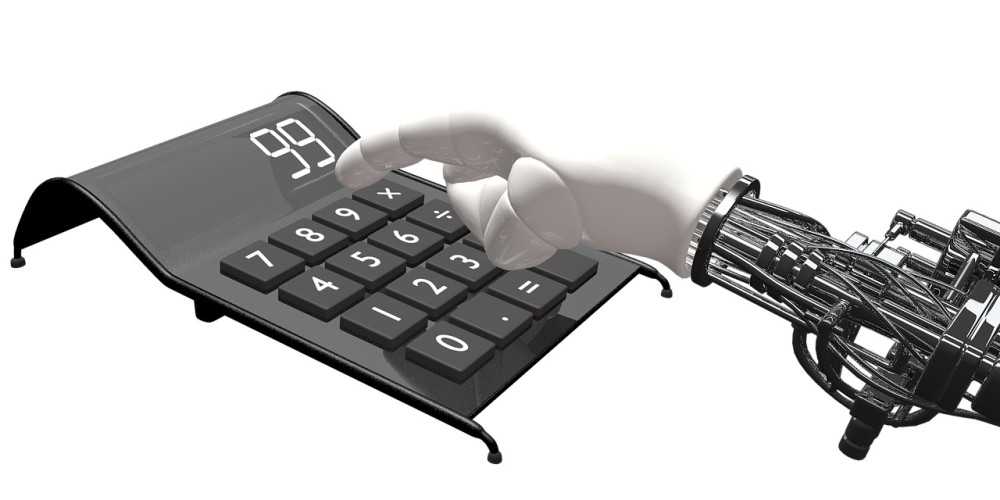Will you have a job in the (near) future?

You know that the employment landscape is undergoing fundamental upheavals, right? You appreciate that the advent of robotics and artificial intelligence is going to give automation a big push, I hope? You realise that some studies suggest nearly half of all today’s jobs could be lost to automation – yes? And that it won’t take as long as you might think? The McKinsey Global Institute recently told us to expect a transformation at roughly 10 times the speed of the Industrial Revolution…
Some people should be actively worried. One of America’s commonplace jobs is that of truck driver. There are 3.5 million such people across the USA. It’s not a nice job – long hours, low pay, lonely lifestyle – but it pays many household bills. And now it’s in real danger of being obsolete. We are all busy looking at the innovation of self-driving personal cars, but self-driving trucks could be with us a lot faster, because businesses will soon latch onto the benefits.
Road tests are underway all over the globe. The most promising approach seems to be self-driving convoys – where a platoon of trucks connected by WiFi, sensors, cameras and GPS is guided by a lead vehicle. Consider this also: some startups claim they can retrofit existing trucks for less than the annual salary cost of a driver. And which business would not be interested in removing the single biggest component of cost – salaries – as well as reducing accidents and improving productivity (automated trucks don’t need to stop for breaks or sleepovers)?
Drivers is just one category. Most jobs that are routine and manual are at risk from machines that can do them better. That includes most workers in transport and logistics; office support; sales and service (cashiers, tellers, counter clerks); plus anything that involves heavy lifting (factory workers, construction site labourers).
Reading this so far, many of you may think you’re sitting pretty; those are low-end jobs being referred to. Those of us who do cognitive work, who are creative, who analyse and offer insights – we’re still fine, right?
Wrong. Consider that a 2013 Oxford University study found accountants and auditors to be at high risk of being automated out by computers. Even today, deep learning software can do a better job of studying CT scans and x-rays than human radiologists. Information workers are no less in danger than heavy lifters. Jerry Kaplan, a Stanford academic, warns us in a telling phrase that automation may be “blind to the colour of your collar.”
Here’s a recent example: an artificial-intelligence chatbot recently successfully contested 160,000 parking tickets across London and New York – and got them overturned. This “robot lawyer”, created by a 19-year-old, helps people contest straightforward disputes. Because the process is formulaic, you don’t actually need to pay a proper lawyer.
Ah, but that’s just the simple stuff, I hear my lawyer friends saying. Wait. Some companies are allowing online platforms to let people negotiate divorces and landlord-tenant disputes without needing a lawyer or a court. In the Netherlands, for instance, you pay just €100 to negotiate an online divorce. The system even calculates child-support suggestions and drafts agreements (a human mediator is available for an additional fee).
Or consider these developments: an AI pilot recently beat a professional fighter pilot with decades of experience. Dallas police used a robot to kill a suspect in a shooter situation the other day. Security robots that act as mobile cameras speeding around malls and buildings are already available for hire at a fraction of the cost of a human guard. When the security forces can do without large numbers of vulnerable, emotional humans, well-paid humans – do you think they’ll hesitate for long?
Many, many changes in the nature of work and employment are coming. This will become more and more apparent to all of us in the next five years. Many questions arise. Will all those lost jobs mean massive employment – or will new jobs emerge? How will society cope when the idea of a regular paycheck disappears for so many people? Are we just repeating the cycles of history – or is it different this time?
How should we get ready – individually and collectively – for this very disruptive change in society? These are profound questions. Let’s return to them on this page next week.
(Sunday Nation, 24 July 2016)

Buy Sunny Bindra's new book
The X in CX
here »
Popular Posts
- The pause that saves usJune 8, 2025
- Where are you rushing to—your funeral?June 29, 2025
- How to spot a real thinkerJune 15, 2025
- Built the app, forgot the flowJune 22, 2025
- The first push is the hardestJune 1, 2025















